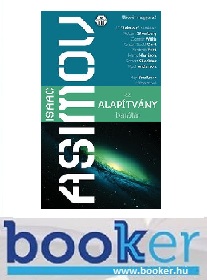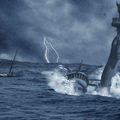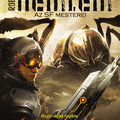
Eltűntnek hitt, vagy jóval inkább elfeledett versek kerültek elő egy brit gimnázium szekrényéből. A versek írói közt megtalálható Griff Rhys Jones komikus, író és színész, illetve Douglas Adams a Galaktikus útikalauz stopposoknak írója.
Az ő életéről és munkásságáról írt és szerkesztett könyvet Neil Gaiman Ne ess pánikba! címmel. A műből kiderül, hogy Douglas Adams már gyerekkora óta ír verseket - néhányat még meg is találhatunk benne mint extra tartalom. Ám most felbukkant versét mindezidáig a feledés homálya őrizte egy poros régi komódban. A megtalálója egy levéltáros hölgy, Stacey Harmer volt, aki néhány porlepte dokumentum közt keresgélt, míg véletlenül rá nem talált egy íróközösség verseire. A társaság tagjai a Brentwood iskola diákjai voltak 1950-től 1983-ig, ami jól lefedi azt az időszakot is, amikor Douglas Adams ennek az intézménynek a padjait koptatta. A klub neve Candlestick, azaz Gyertyatartók volt, és minden diáknak, aki tagja akart lenni, írnia kellett egy verset, ami valahogy a gyertyáról szól, majd irományát fel kellett hangosan olvasnia. Adams belépő verse sikeres volt, és a csoportban töltött ideje alatt sok más költeményt szerzett. Íme hát, amivel bekerült a Gyertyatartókhoz (zárójelben megjegyzem, a vers lefordítására nem vállalkoztam, így az angoltudás elengedhetetlen):
A Dissertation on the task of writing a poem on a candle and an account of some of the difficulties thereto pertaining
I resisted temptation for this declamation
To reach out to literary height
For high aspiration in such an oration
Would seem quite remarkably trite:
So I thought something pithy and succinct and clever
Was exactly the right thing to write.
For nights I sat musing
And musing ... and musing
Whilst burning the midnight oil;
My scratchings seemed futile
My muse seemed quite mute, while
My work proved to be barren toil.
I puzzled and thought and wrestled and fought
'Till my midnight oil was exhausted,
So I furthered my writing by dim candle lighting,
And found, to my joy, this of course did
The trick, for I flowered,
My work - candle-powered –
Was inspired, both witty and slick.
Pithy and polished, my writing demolished
Much paper, as I beguiled
Myself with some punning,
(My word play was stunning,)
I wrote with the wit of a Wilde.
At length it was finished, the candle diminished,
I pondered and let my pride burn
At the great acclamation, the standing ovation
Its first public reading would earn.
But lost in the rapture of anticipation
And thinking how great was my brilliant creation
I quite failed to note as I gazed into space
That incendiary things were about to take place:
That which had ignited my literary passion,
Was about to ignite what my passion had fashion'd.
And - oh! - all was lost in a great conflagration
And I just sat there and said 'Hell and damnation',
For the rest of the night and the following day.
(My muse in the meantime had flitted away
Alarmed, no doubt, at the ornamentation
My language acquired with increased consternation.
So unhaply the fruits of my priceless endeavour
Are lost to the literary world forever.
For now I offer this poem instead,
Which explains in itself why the other's unsaid.
Douglas Adams, 1970. január
forrás: guardian.com
A Ne ess pánikba! című kötetről itt olvashatsz még.
Calildur









Utolsó kommentek